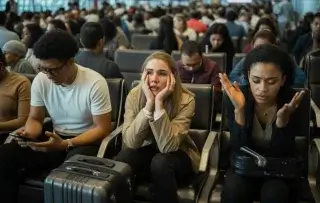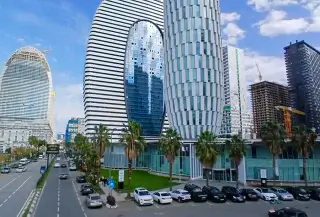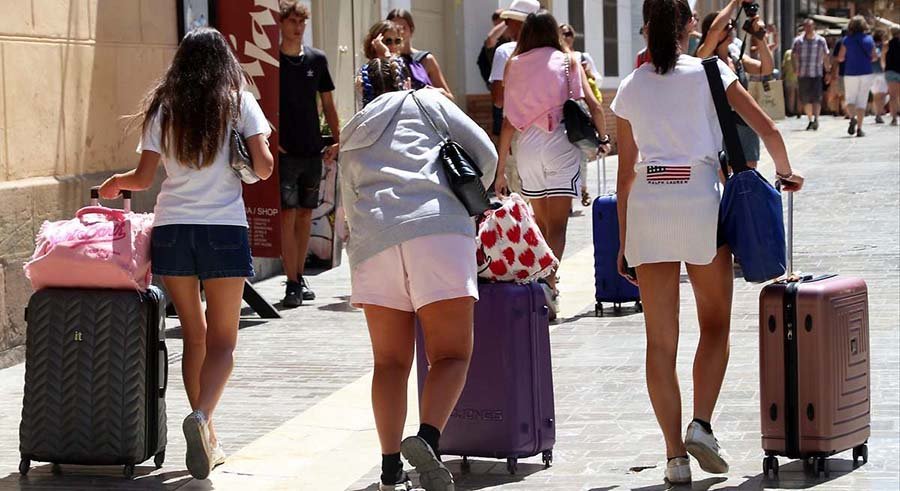read also
 Spring Break shifts toward private luxury villas: trend changes
Spring Break shifts toward private luxury villas: trend changes
 Albanian rents rise as investment returns fall
Albanian rents rise as investment returns fall
 Italy Raises Flat Tax to €300,000
Italy Raises Flat Tax to €300,000
 Storm Kristin Reprices Portugal Property Risk
Storm Kristin Reprices Portugal Property Risk
 London Heathrow Airport: 228 Delays and 48 Flight Cancellations
London Heathrow Airport: 228 Delays and 48 Flight Cancellations
 Batumi Housing Market: Prices Rose by 17% in 2025 — TBC Capital Report
Batumi Housing Market: Prices Rose by 17% in 2025 — TBC Capital Report
Вusiness / Real Estate / Investments / Tourism & hospitality / Spain / Real Estate Spain / Tourism Spain 09.09.2025
Malaga Rent Market: Three-Year Moratorium on Tourist Housing

The Malaga City Council has introduced a three-year moratorium on issuing new licenses for tourist housing (VUT), elEconomista reports. The measure, effective since late August 2025, applies across the entire municipality but does not affect already registered properties. Authorities expect this step to curb sector growth and ease pressure on long-term rental prices.
During the moratorium, the city plans to amend its General Urban Development Plan (PGOU), introducing structural limits for tourist housing. Options under consideration include a complete ban in “saturated” neighborhoods, district quotas, and stricter requirements for safety, energy efficiency, and accessibility. Officials stress that the measure is crucial for balancing urban development and sustainable tourism.
Currently, Malaga has over 12,000 tourist apartments, about 5% of the housing stock, providing around 65,000 beds. In the historic center and El Perchel, the proportion is far higher, pushing long-term rents upward and reducing availability for residents.
Mayor Francisco de la Torre emphasized that the goal is not to stop visitors but to preserve residents’ quality of life: “Tourism remains vital for Malaga’s economy, but citizens’ well-being must also be safeguarded.” This summer, hotel occupancy approached 90%, highlighting the city’s popularity.
Since January 14, 2025, Malaga has already enforced a separate moratorium covering 43 neighborhoods where tourist rentals exceed 8% of the housing stock. Units registered after February 2024 without private entrances or independent utility systems risk losing licenses.
The city has also launched behavior rules for tourists. Visitors are prohibited from walking the streets in swimsuits or bare-chested, playing loud music, or disturbing residents at night. Scooters and bicycles are banned in pedestrian zones. Fines for violations can reach €750.
Similar restrictions are spreading across Spain. Madrid bans short-term rentals in its historic center and in buildings without independent entrances, while Seville caps them at 10% of local housing stock. Alicante introduced a two-year moratorium in January 2025. Barcelona plans to completely ban short-term rentals from 2028, a decision upheld by the Supreme Court.
These measures reflect mounting housing shortages, rising rents, and mass protests. From Barcelona and Palma de Mallorca to Alicante and San Sebastián, thousands of residents demand tighter controls. Demonstrations in Madrid alone drew over 150,000 participants in 2024. By 2025, protests spread further: in Alicante, the closure of a historic bookstore for conversion into apartments sparked rallies under the slogan “Alicante is not for sale.” In Palma, 30,000 marched, blocking tourist buses. In Barcelona, locals sprayed tourists with water guns.
So far, restrictions have not reduced protest activity. The conflict between tourism-driven growth and residents’ quality of life deepens, while stricter rules undermine Malaga’s investment appeal. Some property owners are shifting from short-term rentals to long-term leases, often at lower returns. The municipality thus faces a dual challenge: maintaining investor confidence while ensuring affordable housing for its citizens.
Подсказки: Malaga, Spain, real estate, rental market, tourism, housing policy, Airbnb, investment, protests


